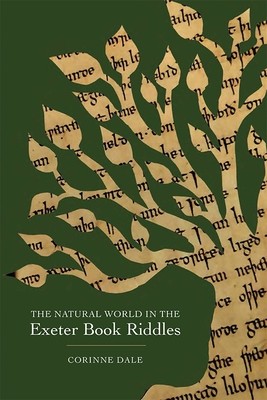
- We will send in 10–14 business days.
- Author: Corinne Dale
- Publisher: Boydell & Brewer
- ISBN-10: 1843844648
- ISBN-13: 9781843844648
- Format: 15.6 x 23.4 x 1.4 cm, hardcover
- Language: English
- SAVE -10% with code: EXTRA
Reviews
Description
An investigation of the non-human world in the Exeter Book riddles, drawing on the exciting new approaches of eco-criticism and eco-theology.
Humanity is a dominant presence in the Exeter Book riddle collection. It is frequently shown using, shaping and binding the physical world in which it lives. The riddles depict master and craftsman and use the familiar human worldas a point of orientation within a vast, overwhelming cosmos. But the riddles also offer an eco-centric perspective, one that considers the natural origins of man-made products and the personal plight of useful human resources.This study offers fresh insights into the collection, investigating humanity's interaction with, and attitudes towards, the rest of the created world. Drawing on the principles of eco-criticism and eco-theology, the study considers the cultural and biblical influences on the depiction of nature in the collection, arguing that the texts engage with post-lapsarian issues of exploitation, suffering and mastery. Depictions of marginalised perspectives ofsentient and non-sentient beings, such as trees, ore and oxen, are not just characteristic of the riddle genre, but are actively used to explore the point of view of the natural world and the impact humanity has on its non-human inhabitants. The author not only explores the riddles' resistance to anthropocentrism, but challenges our own tendency to read these enigmas from a human-centred perspective. Corinne Dale gained her PhD from Royal Holloway, University of London.
EXTRA 10 % discount with code: EXTRA
The promotion ends in 20d.07:30:29
The discount code is valid when purchasing from 10 €. Discounts do not stack.
- Author: Corinne Dale
- Publisher: Boydell & Brewer
- ISBN-10: 1843844648
- ISBN-13: 9781843844648
- Format: 15.6 x 23.4 x 1.4 cm, hardcover
- Language: English English
An investigation of the non-human world in the Exeter Book riddles, drawing on the exciting new approaches of eco-criticism and eco-theology.
Humanity is a dominant presence in the Exeter Book riddle collection. It is frequently shown using, shaping and binding the physical world in which it lives. The riddles depict master and craftsman and use the familiar human worldas a point of orientation within a vast, overwhelming cosmos. But the riddles also offer an eco-centric perspective, one that considers the natural origins of man-made products and the personal plight of useful human resources.This study offers fresh insights into the collection, investigating humanity's interaction with, and attitudes towards, the rest of the created world. Drawing on the principles of eco-criticism and eco-theology, the study considers the cultural and biblical influences on the depiction of nature in the collection, arguing that the texts engage with post-lapsarian issues of exploitation, suffering and mastery. Depictions of marginalised perspectives ofsentient and non-sentient beings, such as trees, ore and oxen, are not just characteristic of the riddle genre, but are actively used to explore the point of view of the natural world and the impact humanity has on its non-human inhabitants. The author not only explores the riddles' resistance to anthropocentrism, but challenges our own tendency to read these enigmas from a human-centred perspective. Corinne Dale gained her PhD from Royal Holloway, University of London.


Reviews